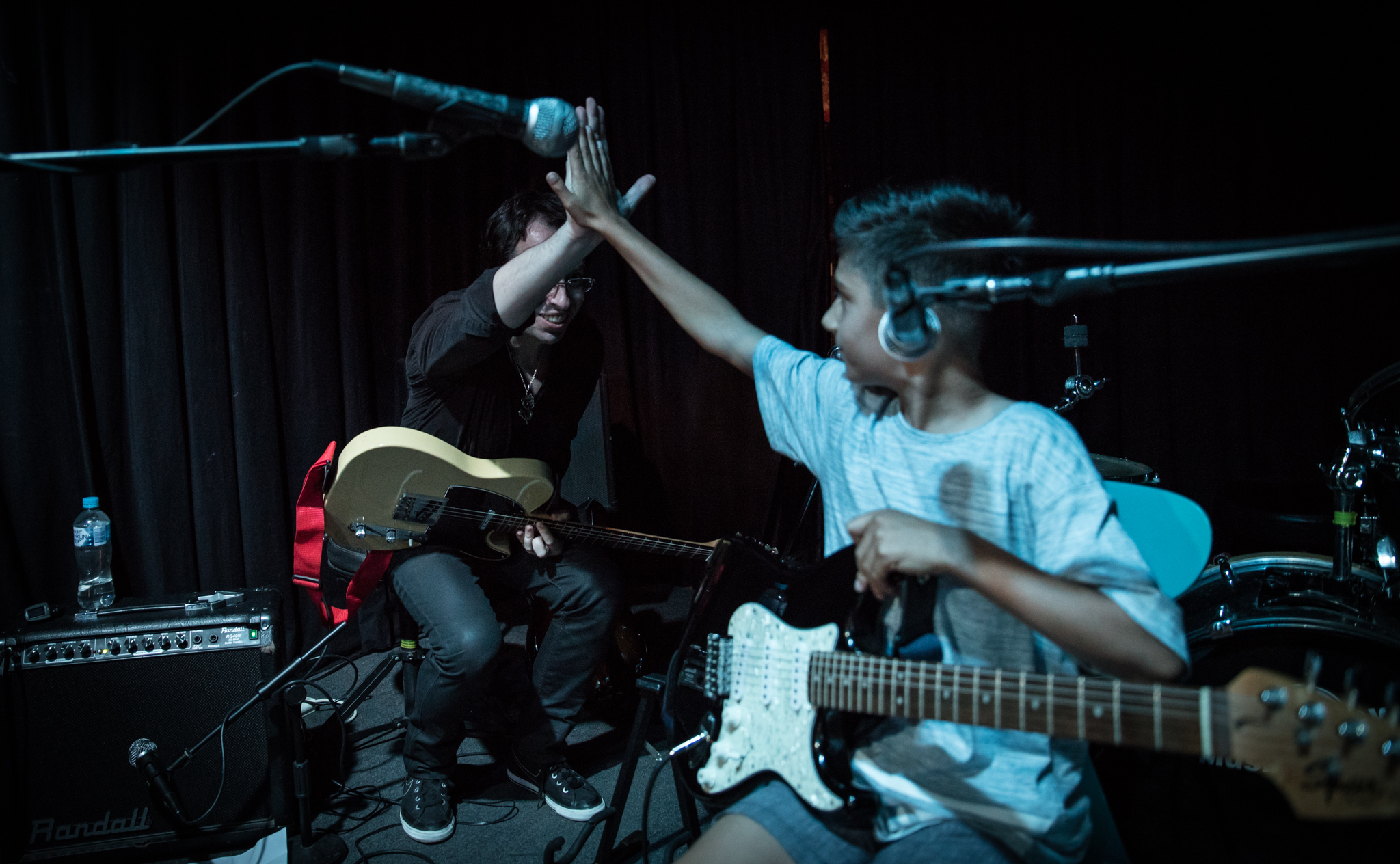How to get the most out of your music lessons?
Having the right guide is essential in your learning process, but being proactive and an eager learner is just as important. It wouldn’t matter if you had the best teacher in the world: if you don’t take action by yourself, you will get nowhere.
Here are 7 ways you can reinforce what you have learned in your music lessons.
1. Practice in small amounts of time BUT on a daily basis
I will always recommend practicing as much as your teacher tells you to do so. At Leaders of Rock, you are meant to practice 1 hour a week.
This may not be possible for certain students (the ones that work all day long, those busy parents that don’t have a lot of spare time, students that have a part-time job, etc.). So, for those students, I would recommend to practice the few minutes you do have in your day,- every day. Learning to play guitar is a process that doesn’t really require that much time, but it does require lots of perseverance and repetition. Guitar practice that lasts a short time, but happens frequently puts you in the right way to learn everything about the guitar.
2. Schedule your practice time
This follows the previous tip: All of us know when we have those 15 minutes of doing nothing (checking Social Media before sleeping, that rest time after lunch etc). So, in order to get the maximum of those 15 minutes, schedule right there your quick-but-slick practice sessions and have your guitar previously in place ready to rock!
3. Play songs you enjoy, learn techniques you need to succeed
That’s what music lessons are for, playing music! You need to communicate a lot with your music teacher for him/her to know your musical taste and to help you learn to play that music. If you are learning some scales, then ask your teacher what solos you could play with that scale at your current level, and search tutorials for those solos while you keep learning that scale. If you are learning chord changes, then ask your teacher what songs could be played with the chords you’re studying at that moment and search for tutorials that show you how to play those songs while you keep practicing the chord changes exercises. This will keep you motivated, help you learn faster and makes practice so much fun!
4. Ask your teacher for more
Continuing with communication, if you want to move faster, just let your Teacher know! You might be surprised that he/she wants you to move faster too! Good music teachers (like the ones in Leaders of Rock) know that you have to move at the students’ pace, and if you show a fast rate of learning, your teacher will know that you seriously want to fire things up!!! How do you earn a faster rate of learning? Easy. Master the material your music teacher gave you before the next lesson. Call him/her or send a message and say “Hey, listen to this” and send an audio of you playing the material you were supposed to study. Your Teacher will know if the material is mastered or if it needs some corrections. Both are good, because if it’s done, then he/she will be more than happy to send you more material, and if it’s not you’ll know exactly where you need to put a little more effort and keep improving your playing!
5. Use the metronome
A metronome will allow to play your favorite solos, exactly as you hear them on YouTube or Spotify. Your strumming will be so accurate and you’ll know exactly when to change chords. Don’t like its’ annoying sound? That’s not a problem anymore. There are tons of apps that have friendly sound metronomes just like “Pro Metronome” that you can set to sound like a drum kit! So you’ll keep your practice fun while still improving :)
6. Listen to a lot of music
Lots of students forget this vital part of learning music. Music is a language, just like when you were learning to speak English as a child. Hearing your mom, dad, brothers, sisters and teachers helped you learn the language. Music is just the same! Listening to music will help to get used to rhythms, chord progressions, solos, techniques, songs structures and so on. So while playing is the “talking” part of music learning, it can’t be done if there’s no “hearing” first.
7. Don’t discontinue your lessons
Last, but not least, one of the biggest mistakes when learning anything is to stop your process. Why is this? Here are 4 reasons why stopping your music lessons can put you in a rut:
- First of all, you lose traction. Week after week, you’re practicing because you have material and a commitment with your music teacher. You feel more engaged to practicing than doing it on your own.
- You lose the opportunity to be around like-minded people, which is something that keeps you engaged too, because you always have friends who you can talk with about things you like, such as music.
- You have a little of healthy competition that motivates you to practice even more and you have a lot of feedback from your classmates.
- Most importantly, you lose the valuable guide of a music teacher. Self-learning may get you stuck in not knowing where to go, or what is the next step
A music teacher is there to support your learning of music, and he/she always keeps you moving forward in the right direction towards your goals :D
These 7 tips are completely within your control, at your fingertips.
So what are you waiting for?
Take action today to become the musician you have always wanted to be! ;)
Post a comment and let us know what you think of this article, and any suggestions how to maximise your music lessons (guitar, piano or voice)!
Thanks a lot to Justin for allowing me to write for this Blog :)
----
About the Author:
Fernando Sanchez is the founder and guitar teacher of Musico Express, a music school that provides guitar lessons and drum lessons in Mexico.

